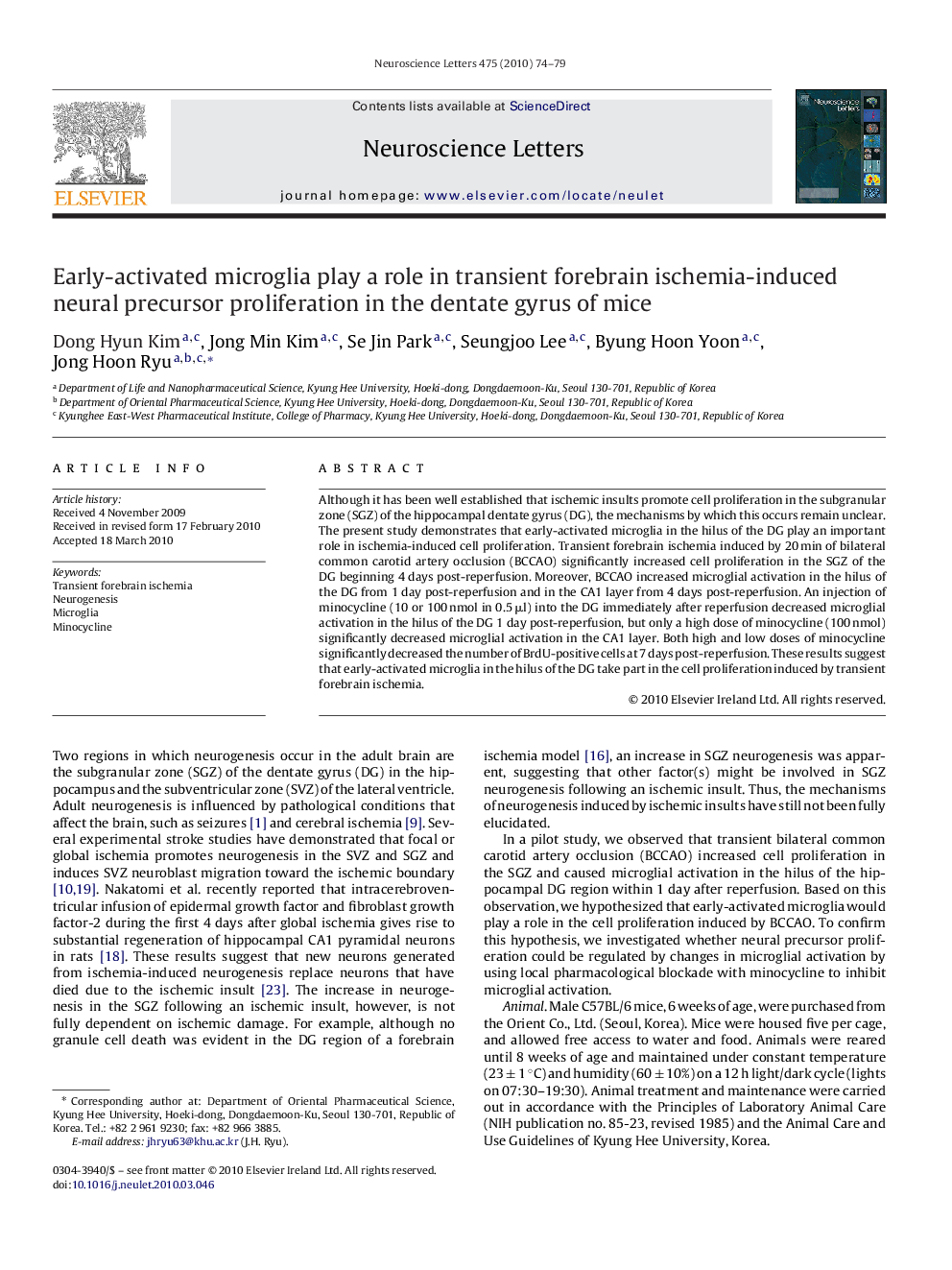| Article ID | Journal | Published Year | Pages | File Type |
|---|---|---|---|---|
| 4346255 | Neuroscience Letters | 2010 | 6 Pages |
Abstract
Although it has been well established that ischemic insults promote cell proliferation in the subgranular zone (SGZ) of the hippocampal dentate gyrus (DG), the mechanisms by which this occurs remain unclear. The present study demonstrates that early-activated microglia in the hilus of the DG play an important role in ischemia-induced cell proliferation. Transient forebrain ischemia induced by 20 min of bilateral common carotid artery occlusion (BCCAO) significantly increased cell proliferation in the SGZ of the DG beginning 4 days post-reperfusion. Moreover, BCCAO increased microglial activation in the hilus of the DG from 1 day post-reperfusion and in the CA1 layer from 4 days post-reperfusion. An injection of minocycline (10 or 100 nmol in 0.5 μl) into the DG immediately after reperfusion decreased microglial activation in the hilus of the DG 1 day post-reperfusion, but only a high dose of minocycline (100 nmol) significantly decreased microglial activation in the CA1 layer. Both high and low doses of minocycline significantly decreased the number of BrdU-positive cells at 7 days post-reperfusion. These results suggest that early-activated microglia in the hilus of the DG take part in the cell proliferation induced by transient forebrain ischemia.
Related Topics
Life Sciences
Neuroscience
Neuroscience (General)
Authors
Dong Hyun Kim, Jong Min Kim, Se Jin Park, Seungjoo Lee, Byung Hoon Yoon, Jong Hoon Ryu,
